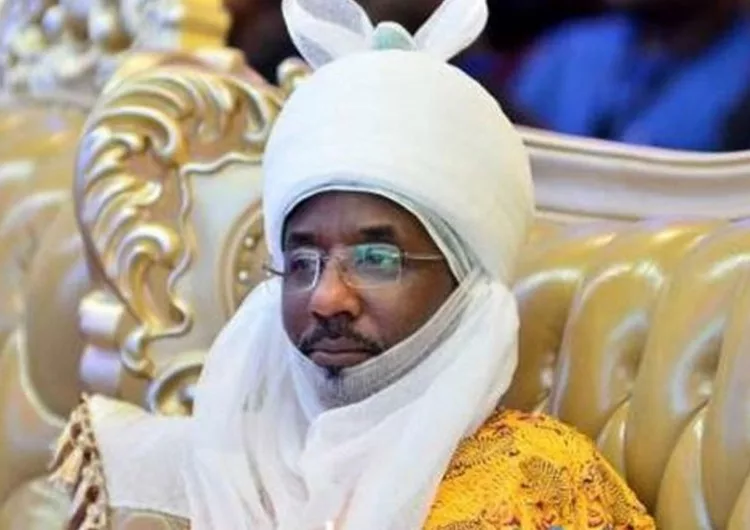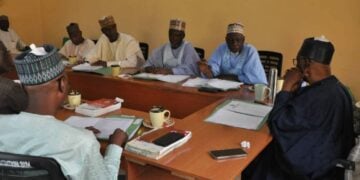The 16th Emir of Kano, Muhammadu Sanusi II, has said that Nigeria has too many sycophants in government while cautioning ministers and presidential aides against turning into praise singers.
Sanusi II gave the charge on Tuesday in Abuja during the Oxford Global Think Tank Leadership Conference and Book Launch, where he joined other notable Nigerians, including Atedo Peterside, to discuss Nigeria’s economic policies and governance challenges.
Speaking on the theme of integrity and courage in public service, Sanusi II, who is a former Governor of the Central Bank of Nigeria (CBN), lamented that sycophancy has deepened Nigeria’s leadership crisis, as many officials prioritise flattery over truth-telling.
“Our leaders listen, but only to those who tell them what they want to hear. Nigeria has too many sycophants in government. Those who speak the truth are seen as enemies of the state,” he said.
“You sit in a meeting, and the President is there. The first thing people say is, ‘Mr. President, I want to thank you for your great leadership. God has blessed Nigeria by making you our leader.’ By the time they finish laying that foundation, it is their advice that the President accepts.”
The former CBN governor said this culture of excessive praise during official engagements “stifles honest feedback and undermines good governance.”
“When you tell the truth and point out what is wrong, they say you are the enemy. That is why people like Atedo Peterside and I are always seen as enemies of the state, because people don’t like hearing the truth,” Sanusi II added.
He urged public officials to restore integrity to public service by speaking truth to power, warning that blind loyalty and flattery are major obstacles to national progress.
“Those who work with the President must understand that it is not in their benefit to turn themselves into praise singers. You disgrace yourself and the office you hold when you do that,” he said.
Turning to economic issues, Sanusi II commended the Tinubu administration for implementing fuel subsidy removal and unifying exchange rates, policies he described as “painful but necessary.” However, he warned that the reforms would fail unless backed by fiscal discipline and transparency in government spending.
“If you stop paying subsidies but continue borrowing more, it means you’ve filled one hole only to dig another. The real challenge now is the quality of government spending and the management of the revenues saved,” the Kano monarch said.
Reflecting on the country’s economic history, the 16th Emir of Kano noted that Nigeria’s current fiscal woes stemmed from years of policy inconsistency and populist politics.
“In 2012, we warned that the subsidy was unsustainable, but politics took over. Now, the same people who led protests against it have inherited the problem and had no choice but to do the right thing,” he recalled.
While praising the professionalism of Finance Minister Wale Edun and CBN Governor Yemi Cardoso for efforts to stabilise inflation and reduce exchange rate volatility, Sanusi II called for urgent cuts to government waste and ostentation.
“Why do we need 48 ministers? Why do we need long convoys of vehicles and endless travel expenses? We cannot preach sacrifice to the people while living in luxury at the top,” he declared.
Also speaking at the event, Atedo Peterside, founder of Stanbic IBTC Bank, echoed Emir Sanusi II’s call for fiscal prudence, urging the government to ensure that savings from subsidy removal are used to improve the lives of ordinary Nigerians.
“It’s not true that pain automatically brings gain. Gain only follows pain if the government spends wisely, eliminates waste and supports the poor,” Peterside said.
The Oxford Global Think Tank Leadership Conference brought together top economists, policymakers and thought leaders to discuss reforms needed to steer Nigeria toward sustainable economic recovery and ethical governance.





